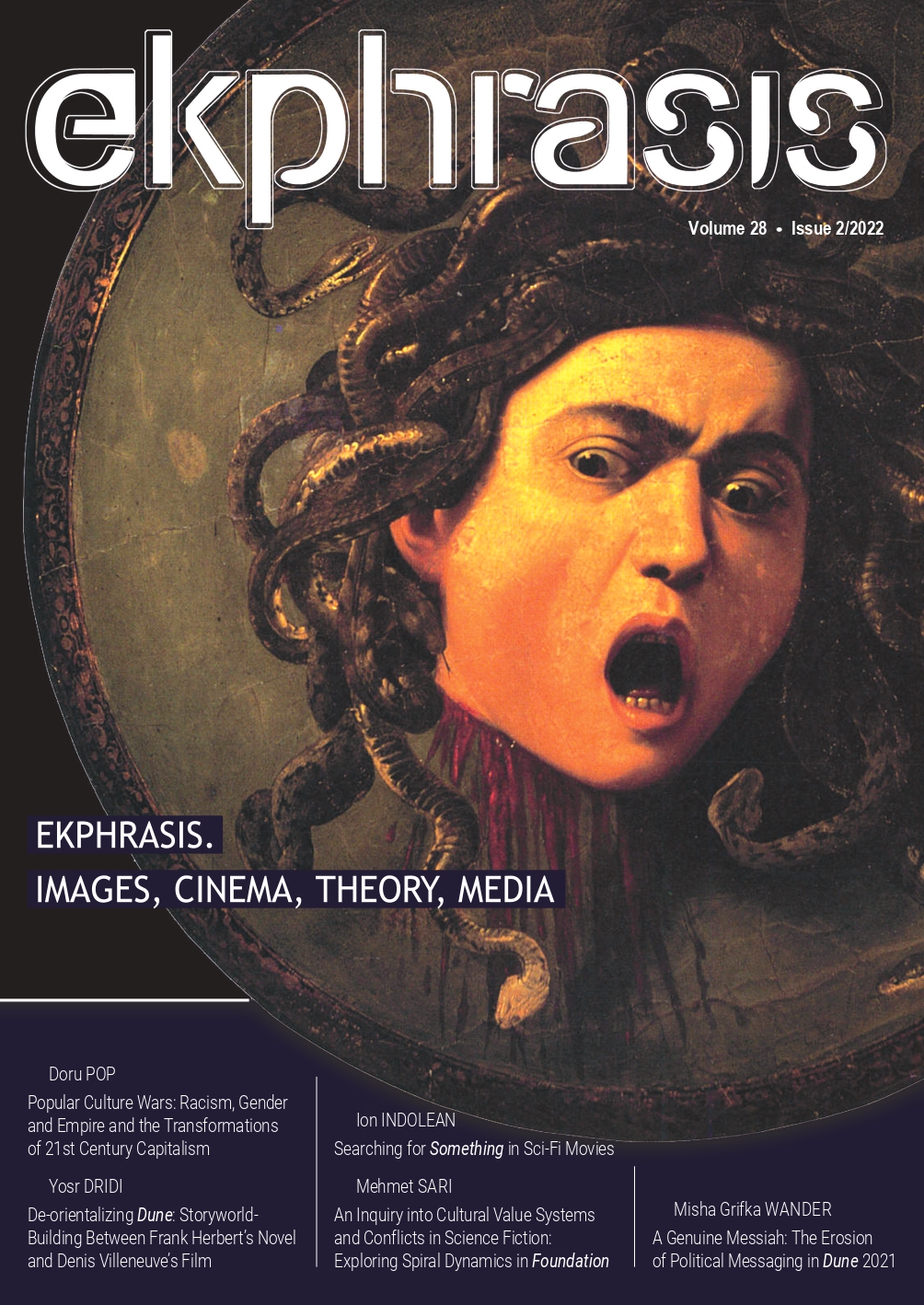De-orientalizing Dune: Storyworld-Building Between Frank Herbert’s Novel and Denis Villeneuve’s Film
De-orientalizing Dune: Storyworld-Building Between Frank Herbert’s Novel and Denis Villeneuve’s Film
Author(s): Yosr DridiSubject(s): Studies of Literature, Film / Cinema / Cinematography
Published by: Universitatea Babeş-Bolyai, Facultatea de Teatru si Televiziune
Keywords: science-fiction; orientalism; cinematic adaptation; storyworld-building;
Summary/Abstract: In Dune (1965), Frank Herbert builds an SF universe that, although futuristic, remains geopolitically reminiscent of our historical world, with ethnically and culturally identifiable characters. For all his storyworld-building efforts, Herbert’s representation of the desert planet Arrakis and his Arab/Muslim inspired characterization of the Fremen have often been accused of romantic Orientalism at best and white-saviorism at worst. Recently, Denis Villeneuve released his film adaptation of (part of) the novel, Dune: Part One (2021), which has rekindled the debate on SF orientalism and stimulated new discussions on the interpretation of those problematical representational and thematic issues for a cinema-savvy andrace-conscious 21st century audience. This paper proposes to determine the extent to which Herbert’s SF orientalism survived in Villeneuve’s adaptation. Accordingly, I will compare the aesthetic literary and cinematic representations of space and characters and discern their thematic implications. Ultimately, Villeneuve’s film will be assessed as an attempt at contemporizing and de-orientalizing its literary source through controversial politics of casting and politically-correct screenplay modifications, hence adapting the novel to the silver screen, the film to the contemporary spectator, and the cinematic product to the Hollywood film industry.
Journal: Ekphrasis. Images, Cinema, Theory, Media
- Issue Year: 28/2022
- Issue No: 2
- Page Range: 49-67
- Page Count: 19
- Language: English

